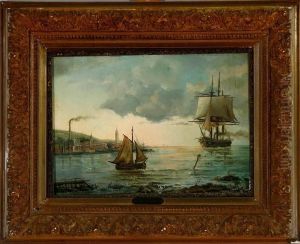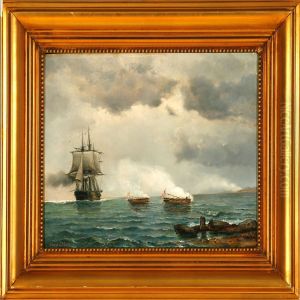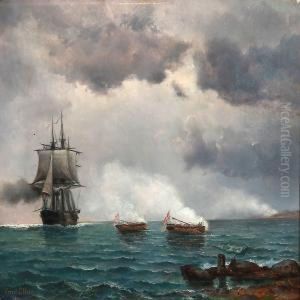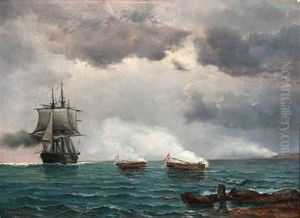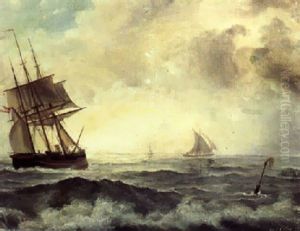Carit Etlar Paintings
Carit Etlar, born Carl Brosbøll on August 7, 1816, in Fredericia, Denmark, was a Danish author and one of the most prominent figures in 19th-century Danish literature. He is best known for his historical novels and stories set in the Danish countryside, which often include elements of national romanticism and adventure. Etlar chose his pseudonym in homage to two great minds: 'Carit' from the Latin word for 'charity' and 'Etlar' from the Etruscan language.
Etlar's writing career began as a journalist, but he quickly turned to fiction, drawing inspiration from Danish history and folklore. His works often reflected his patriotic spirit and were characterized by vivid descriptions of the Danish landscape and rural life. Among his most famous works is 'Gjøngehøvdingen' ('The Gønge Chieftain'), published in 1853, which tells the story of Svend Poulsen, the leader of a group of Danish guerrilla fighters during the 17th-century Scanian War against Sweden. This novel was widely popular in Denmark and contributed significantly to his reputation as a writer of national importance.
In addition to his novels, Etlar wrote travelogues, short stories, and plays. His love for the Danish countryside is evident in his detailed narrative descriptions, which also served to document the way of life and customs of rural Denmark in his time. Etlar's work was not only significant in terms of literary quality but also in contributing to the development of a distinct Danish national identity during a period of intense cultural and political change.
Carit Etlar continued to write and remained a beloved figure in Danish literature until his death on May 9, 1900, in Copenhagen. His legacy includes a significant contribution to the cultural and historical record of Denmark, and his works are still read and appreciated for their historical value and storytelling prowess. Etlar's life and literature reflect the 19th-century Danish Golden Age, a period of extraordinary cultural and intellectual achievement in the country.
